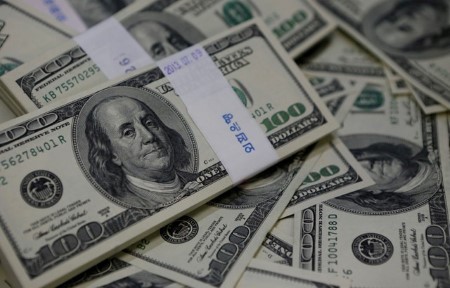




Policy Rate Updates: BSP outlook — cloudy with a chance of rate cut
 DOWNLOAD
DOWNLOAD

January Economic Update: Growth slows, prices rise
 DOWNLOAD
DOWNLOAD

Inflation Update: Up, up, and away?
 DOWNLOAD
DOWNLOAD


Dollar rises as China defends stringent COVID policy

SINGAPORE, Nov 7 (Reuters) – The dollar firmed on Monday as sentiment soured after China said it is sticking with its strict COVID restrictions, quashing hopes of an imminent reopening in the world’s second-largest economy which had earlier fired a broad rally in riskier assets.
China said over the weekend that it will persevere with its “dynamic-clearing” approach to COVID-19 cases as soon as they emerge, giving little indication it would ease its outlier zero-COVID strategy nearly three years into the pandemic.
The dollar gained 0.55% on the Chinese offshore yuan to 7.2141, while the risk-sensitive Australian and New Zealand dollars were also among the biggest losers, both falling nearly 1% in early Asia trade.
The Aussie was last down 0.7% at USD 0.6426, while the kiwi fell 0.6% to USD 0.5893.
The two currencies were huge beneficiaries of a broad rally on Friday – rising nearly 3% – as speculation that China could soon end its COVID restrictions gathered pace and buoyed risk appetite.
“People are kind of thinking there’s going to be an eventual opening … but it’s not obvious to me that there’s an imminent reopening due, and I think it’s kind of premature,” said Alvin Tan, head of Asia FX strategy at RBC Capital Markets.
The economic impact of China’s zero-COVID policy was again highlighted in trade figures released on Monday, which showed exports and imports unexpectedly contracted in October, the first simultaneous slump since May 2020.
Elsewhere, sterling edged 0.3% lower to USD 1.1340, while the euro slipped 0.1% to USD 0.9949, erasing some of their roughly 2% jump on Friday.
“Any rally in the Aussie, as well as the other currencies, will likely prove short-lived, given China is still very committed to its approach to the COVID outbreaks,” said Carol Kong, a currency strategist at Commonwealth Bank of Australia (CBA).
Against the Japanese yen, the dollar was up 0.32% at 147.14.
Investors were also assessing Friday’s US jobs report which showed that firms added a more-than-expected 261,000 jobs in October and hourly wages continued to rise, evidence of a still-tight labour market.
But hints of some easing of market conditions, with the unemployment rate rising to 3.7%, fuelled hopes that the much sought after Fed pivot could be on the horizon, capping the dollar’s gains.
Against a basket of currencies, the US dollar index last stood at 111.02. It had lost almost 2% at the end of last week.
“It was, overall, a pretty mixed report,” said CBA’s Kong. “Judging by market reaction, investors really focused on the lift in unemployment rate, and that might have led to market participants scaling back their expectations on the Fed funds rate.”
Four Federal Reserve policymakers on Friday also indicated they would still consider a smaller interest rate hike at their next policy meeting.
Fed funds futures now show that markets are pricing in a 69% chance of a 50-basis-point rate hike at the Fed’s December meeting, with the next key data point being Thursday’s US inflation figures.
(Reporting by Rae Wee; Editing by Shri Navaratnam)
This article originally appeared on reuters.com





 By Reuters
By Reuters